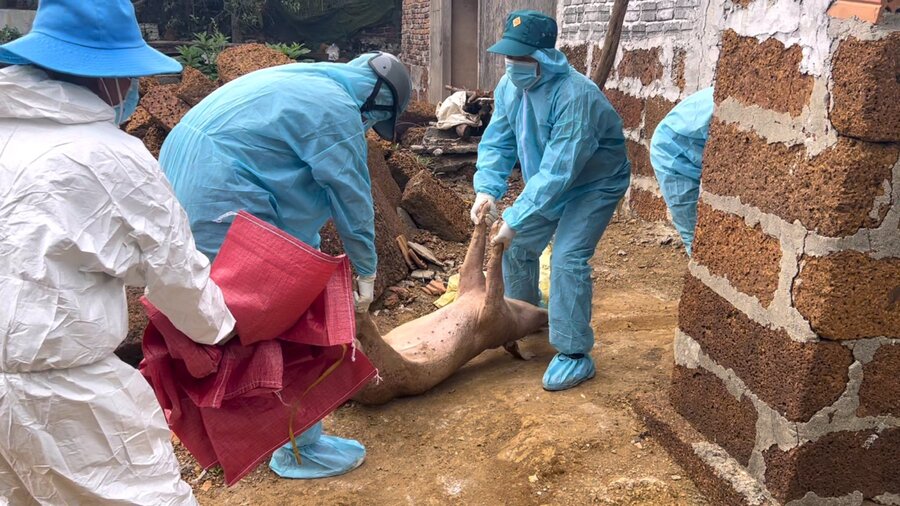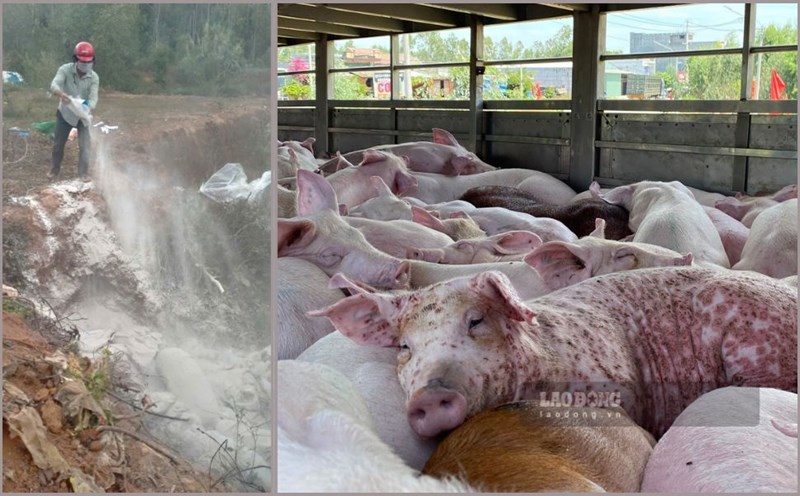According to the Department of Animal Husbandry and Veterinary Medicine of Quang Ngai province, since the beginning of July, African swine fever has occurred in pigs of more than 10,400 households in 60 communes, wards and special zones in the area, forcing more than 73,200 pigs to be destroyed. Currently, the whole province has 23 communes and wards that have not recorded any new diseases for 7 days, only 3 communes and wards still have epidemics (Son Tinh, Tu Nghia, Nghia Hanh).
Mr. Pham Minh Cuong, Deputy Head of the Department of Animal Husbandry and Veterinary Medicine of Quang Ngai province, said that the fact that there are only 3 localities with the epidemic in less than 7 days shows that African swine fever in Quang Ngai province is gradually being controlled. This result was achieved thanks to the drastic participation of the agricultural sector and authorities at all levels. The province has coordinated measures such as distributing chemicals and vaccines, organizing large-scale disinfection campaigns, strictly controlling the transportation, trading, and slaughter of pigs.

In addition, communes and wards have established anti-epidemic teams, implemented the elimination of sick pigs, and increased propaganda using loudspeakers and leaflets to raise awareness among livestock farmers. To date, the whole province has used more than 9,400 liters of chemicals and 241,000 kg of lime powder for disinfection, contributing to preventing the spread of pathogens.
"The patient's condition has basically been controlled. However, the weather in Quang Ngai province has changed erratically, directly affecting the resistance of livestock. Along with that, the form of livestock farming with large-scale household farming still accounts for a large number, the cages are arranged near homes, close to traffic routes, the conditions of livestock barns are still limited, not meeting the conditions for biosafety livestock farming, so the risk of recurrence of the epidemic is still potential. People should absolutely not be subjective, Mr. Cuong advised.
In parallel with the work of fighting the epidemic, Quang Ngai province has issued many documents guiding people to re-herd pigs to ensure biosafety. Accordingly, households are only allowed to re-herd in areas where no new cases have occurred for 21 days and must fully meet the conditions for hygiene, disinfection, and barn upgrading.
The Department of Animal Husbandry and Veterinary Medicine of Quang Ngai province also recommends that re-herded livestock farmers need to leave the barns empty and strictly clean, disinfect, and disinfect the barns continuously for at least 30 days before releasing the livestock. In addition, purchased breeds must have a clear origin from reputable establishments, have negative test results for African swine fever, and have a quarantine certificate for cases purchased outside the province.
"The herding should not be carried out en masse but should follow a roadmap, prioritizing closed livestock facilities to ensure disease safety. If we are reinforced when not qualified, it will be easy to cause an outbreak again, Mr. Pham Minh Cuong, Deputy Head of the Department of Animal Husbandry and Veterinary Medicine of Quang Ngai province, advised.











